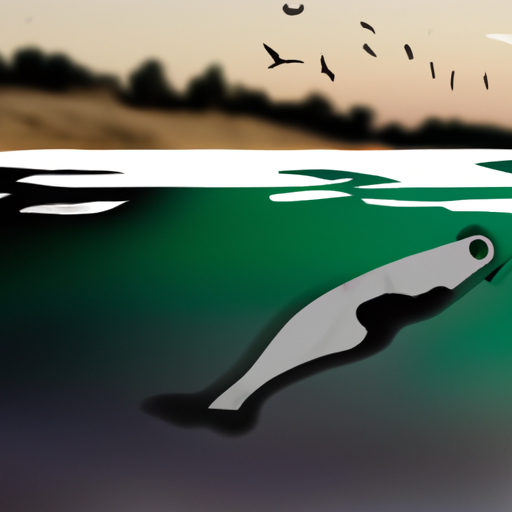-
Table of Contents
How does pollution affect aquatic life?

Pollution has a detrimental impact on aquatic life, causing various threats to the delicate balance of marine ecosystems. The contamination of water bodies by pollutants disrupts the natural habitat of aquatic organisms, leading to severe consequences for their survival and overall ecosystem health.
Pollution Impact
Pollution, whether it is caused by industrial waste, agricultural runoff, or improper disposal of chemicals, has a profound impact on aquatic life. The release of toxic substances into water bodies leads to the contamination of the water, making it unsuitable for many aquatic organisms to survive. This pollution impact can be devastating, affecting both the physical and biological aspects of aquatic ecosystems.
Chemical pollutants, such as heavy metals and pesticides, can accumulate in the tissues of aquatic organisms, leading to bioaccumulation and biomagnification. This means that as smaller organisms consume contaminated food or water, the concentration of pollutants increases as they move up the food chain. Eventually, top predators, such as large fish or marine mammals, can suffer from high levels of toxins, causing reproductive issues, organ damage, and even death.
Furthermore, pollution can also lead to eutrophication, a process where excessive nutrients, such as nitrogen and phosphorus, enter water bodies. This nutrient overload stimulates the growth of algae, creating algal blooms. These blooms can deplete oxygen levels in the water, leading to hypoxia or dead zones. Aquatic organisms that rely on oxygen, such as fish and other marine species, suffocate and die in these oxygen-deprived areas.
Aquatic Life Threats
Pollution poses numerous threats to aquatic life, endangering the survival of various species and disrupting the delicate balance of marine ecosystems. Some of the key threats include:
- 1. Habitat Destruction: Pollution can destroy the natural habitats of aquatic organisms, such as coral reefs, mangroves, and seagrass beds. These habitats provide essential shelter, breeding grounds, and food sources for many marine species. When these habitats are polluted or destroyed, the affected organisms lose their homes and struggle to survive.
- 2. Reduced Reproductive Success: Pollutants can interfere with the reproductive processes of aquatic organisms, leading to reduced reproductive success. For example, certain chemicals can disrupt the endocrine system of fish, causing reproductive abnormalities and decreased fertility. This can result in declining populations and imbalances within the ecosystem.
- 3. Altered Behavior: Pollution can also affect the behavior of aquatic organisms. For instance, exposure to certain pollutants can impair the ability of fish to navigate, find food, or avoid predators. This disruption in behavior can have cascading effects throughout the food web, impacting the overall functioning of the ecosystem.
- 4. Weakened Immune Systems: Pollutants in the water can weaken the immune systems of aquatic organisms, making them more susceptible to diseases and infections. This can lead to mass mortality events and further disrupt the balance of the ecosystem.
Marine Ecosystem Damage
Pollution not only affects individual aquatic organisms but also causes significant damage to entire marine ecosystems. The consequences of pollution on marine ecosystems include:
- 1. Biodiversity Loss: Pollution can lead to the decline and extinction of various species within marine ecosystems. When certain species are unable to survive due to pollution, it disrupts the intricate web of interactions and dependencies within the ecosystem. This loss of biodiversity can have far-reaching consequences, affecting the stability and resilience of the ecosystem.
- 2. Disruption of Food Chains: Pollution can disrupt the natural food chains within marine ecosystems. For example, if pollution causes the decline of a particular species, it can have a domino effect on the organisms that rely on it as a food source. This disruption can lead to imbalances and cascading effects throughout the ecosystem.
- 3. Coral Reef Degradation: Pollution, particularly from activities such as coastal development and improper waste disposal, poses a significant threat to coral reefs. Chemical pollutants and sedimentation can cause coral bleaching, where corals expel the symbiotic algae living within their tissues. This bleaching weakens the corals and makes them more susceptible to disease, ultimately leading to the degradation of entire reef ecosystems.
- 4. Economic Impact: Pollution in marine ecosystems can have severe economic consequences. For example, contaminated fisheries can lead to reduced fish stocks, affecting the livelihoods of fishermen and the availability of seafood. Additionally, the degradation of popular tourist destinations, such as polluted beaches or coral reefs, can negatively impact the tourism industry.
In conclusion, pollution has a profound and negative impact on aquatic life. It disrupts the delicate balance of marine ecosystems, threatens the survival of various species, and causes widespread damage. It is crucial to address pollution through sustainable practices, proper waste management, and stricter regulations to protect and preserve our precious aquatic ecosystems.